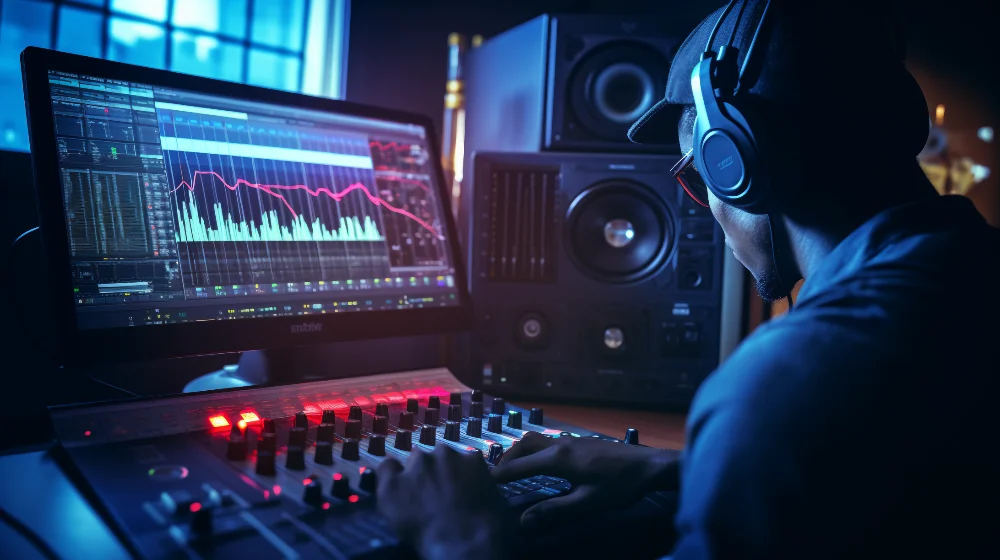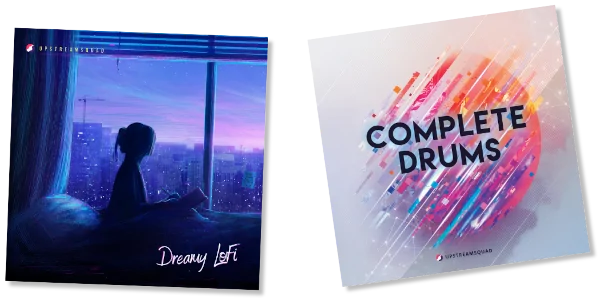Singers primarily use Auto-Tune for its ability to ensure vocal precision and enhance performance quality. If you’re new to this technology, you might want to start with understanding exactly ‘What is Auto-Tune?‘.
This tool, prevalent in about 90% of pop songs, helps artists correct pitch inaccuracies, making sure their vocals align perfectly with the music’s key and tempo.
Beyond mere pitch correction, Auto-Tune also serves as a creative tool, allowing artists to experiment with vocal effects and textures that might be challenging to achieve naturally.
This versatility has made it a staple in modern music production, albeit one that has ignited debates over its impact on the authenticity and skill in vocal performances.
As we delve into the world of Auto-Tune, we’ll explore both its technical benefits and the artistic opportunities it presents, as well as the controversies it has sparked in the music industry.
Key Takeaways
- Auto-Tune is a voice processing app that automatically corrects and enhances the pitch of a singer’s voice.
- Auto-Tune has revolutionized the music industry and become a popular tool for recording artists and music producers.
- Auto-Tune allows singers to achieve perfect pitch, correct vocal imperfections, and experiment with unique vocal effects.
- Auto-Tune has faced criticism for promoting a lack of authenticity in music and diminishing the importance of natural talent and vocal skills.
The Evolution of Auto-Tune in Music History
Over the years, you’ve likely noticed how Auto-Tune has dramatically changed the sound of popular music. This evolution in music history has been significant.
Auto-Tune, once just a tool for pitch correction, is now a creative force used by singers across the music industry. Its widespread use has reshaped popular soundscapes, marking a pivotal turn in the way music is produced and perceived.
Exploring Pitch Correction: Auto-Tune’s Role in Vocal Performance
As you explore the science behind pitch correction technology, you’ll discover that Auto-Tune’s algorithmic prowess lies in its ability to correct off-key notes in real-time.
This feature plays a significant role in enhancing vocal accuracy during live performances, allowing artists to deliver near-perfect renditions of their songs.
It’s crucial to understand this tool’s function and impact, as it has reshaped the landscape of modern vocal performances.
The science behind pitch correction technology
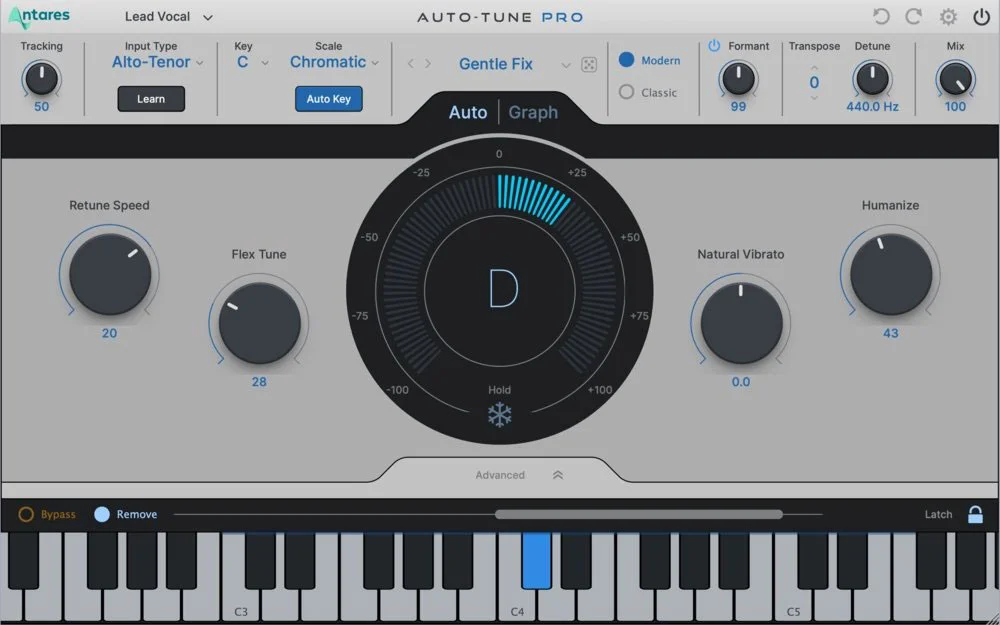
Why do you think Auto-Tune’s pitch correction technology plays such a crucial role in vocal performances?
It’s because pitch inaccuracies can derail a performance.
An audio engineer uses Autotune to correct these inaccuracies, ensuring the vocal pitch aligns with the music.
How Auto-Tune enhances vocal accuracy in live performances
In the realm of live performances, you’ll find Auto-Tune is a game-changer, enhancing vocal accuracy and giving singers the confidence to deliver flawless performances.
It’s often used to:
- Enhance the pitch of live vocals, enabling singers to hit every note perfectly.
- This autotune use helps to maintain vocal accuracy throughout the performance.
- Ultimately, it enhances the overall quality of performances, allowing singers to captivate their audience.
Auto-Tune as a Tool for Musicians and Singers
As a singer, you might use Auto-Tune as a tool to balance authenticity with the benefits of technology in your music.
It’s an effective way to correct minor pitch errors, create unique vocal effects, and achieve a polished sound.
However, it’s important to use it sparingly and in conjunction with honing your vocal skills to maintain an emotional connection with the audience.
Balancing authenticity with technological aid in modern music
Your singer’s authenticity doesn’t have to be compromised when using Auto-Tune as a tool in modern music production. This software aids you in enhancing your vocal performance in a song by correcting pitch inaccuracies and adding unique vocal effects. It also maintains your artistic integrity by allowing you to use auto-tune subtly and keeping the emotional connection intact.
This technology aid in modern music enhances the artist’s creativity without sacrificing authenticity.
Practical Uses: Why Musicians Turn to Auto-Tune

As we shift to the practical aspects, consider the myriad of famous performances that were enhanced by Auto-Tune.
It’s not just about the live stage; the necessity of Auto-Tune in studio recording sessions is also significant.
For musicians and producers interested in exploring similar effects, you can explore free Auto-Tune VST plugins available on SoundShockAudio.
This tool has become indispensable for many musicians in their strive for pitch-perfect sound and unique style.
Case studies: Famous performances improved by Auto-Tune
Let’s delve into some famous performances significantly improved by the use of Auto-Tune.
- Kanye West’s 808s & Heartbreak: The auto-tune effect transformed his voice, delivering a unique performance. This case study demonstrates Auto-Tune’s power to enhance emotional expression.
- Cher’s ‘Believe’: The song that made Auto-Tune famous. The technique amplified Cher’s voice, creating an iconic performance.
These famous performances improved by Auto-Tune showcase its potential.
The necessity of Auto-Tune in studio recording sessions
In the realm of studio recording sessions, you’ll find Auto-Tune isn’t just a tool for correction, but a necessity for many musicians.
As a tool, it refines the audio that’s recorded, ensuring a polished output. The producer, along with the engineer, use it to fine-tune the vocal track, reducing the number of re-recordings.
It’s instrumental in creating high-quality, professional music.
Auto-Tune’s Influence on Vocal Training and Performance
You might wonder if Auto-Tune can be a tool for vocal development. While it’s known for correcting pitch inaccuracies in post-production, it also has implications for live performances and vocal training.
Let’s explore how this technology influences the way singers train and perform.
Can singers rely on Auto-Tune for vocal development
Don’t think for a second that Auto-Tune can replace traditional vocal training; it’s a tool, not a crutch. While it can help talented singers correct pitch and sound professional, it doesn’t foster true vocal development.
Here’s why:
- Singers need real training to control their voice.
- Auto-Tune masks, not corrects, vocal flaws.
- Over-reliance on Auto-Tune can hinder growth.
- It may discourage effort in improving natural vocal skills.
Criticism and Controversy: The Auto-Tune Debate
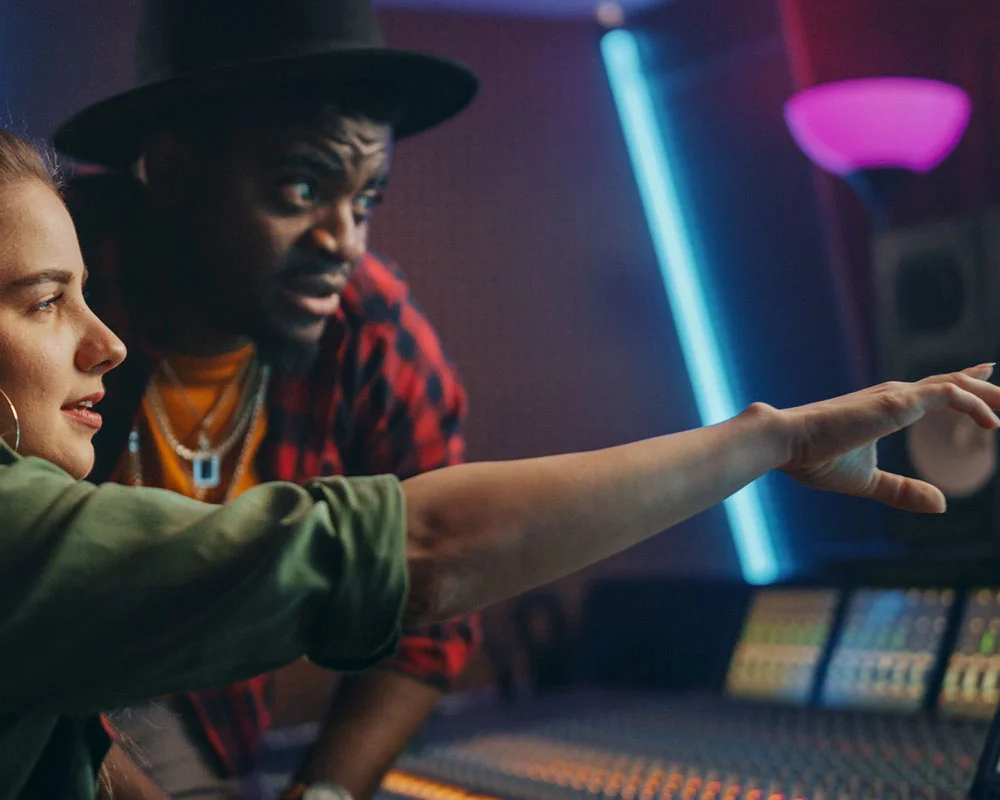
As we navigate the controversy surrounding Auto-Tune, it’s vital to consider its influence on talent perception. You might ask, at what point does this tool transition from a subtle enhancement to an overt, dominating effect on a singer’s voice?
Let’s dissect these concerns and analyze the criticisms inherent in the Auto-Tune debate.
Auto-Tune’s impact on the perception of talent in the industry
Despite its popularity, Auto-Tune’s use has sparked intense debates about its impact on the perception of talent in the music industry.
Critics argue that:
- It creates an industry standard, diminishing the value of being naturally talented.
- Its overuse creates an artificial tune, impacting auto-tune’s impact on the authenticity of music.
This criticism questions whether Auto-Tune is a tool for enhancement or a crutch for the less talented.
From subtle enhancement to overt effect: When does Auto-Tune become too much
You might wonder, when does the use of Auto-Tune shift from being a subtle enhancement to an overt effect that’s simply too much?
Within rap and pop, the vocal effect can range from subtle pitch correction to a robotic sound.
While some artists use auto-tune sparingly for enhancements, othersAuto-Tune’s pitch correction may make it the focal point, creating controversy about the authenticity of their talent.
The Future of Auto-Tune and Pitch Correction Technology
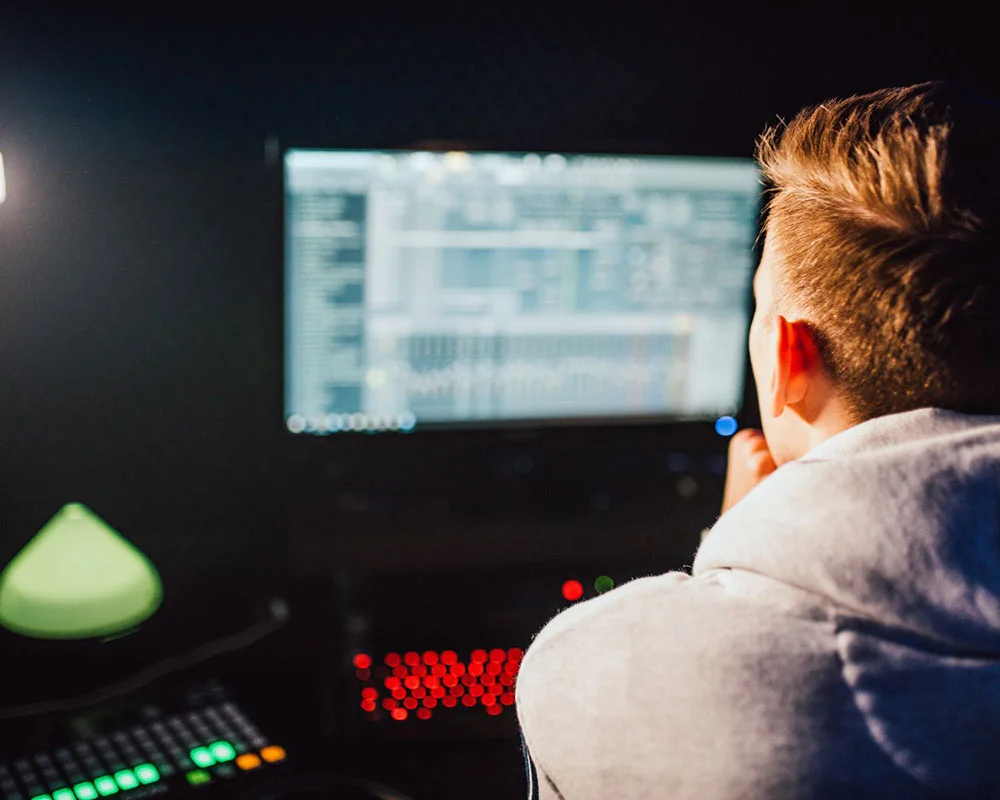
Looking ahead, you’ll see that the evolution of Auto-Tune and pitch correction technology has opened a world of innovation in vocal effects.
Consider the potential for more nuanced, natural-sounding pitch correction as technology advances.
As a stakeholder in the music industry, it’s crucial to understand how these developments could shape the future of music production.
Innovations in vocal effects and the potential future of pitch correction
As technology advances, you’ll notice that Auto-Tune and similar pitch correction tools are continually evolving, opening up a new world of vocal effects and innovative music production techniques.
The potential future of pitch correction:
- More refined algorithms for natural, flawless results.
Innovations in vocal effects:
- Revolutionary effects that could help even average singers sing well.
This progress is transforming the pitch of a singer’s voice, opening vast possibilities for how singers use Auto-Tune.
Auto-Tune: A Sonic Revolution Igniting Debates and Redefining Music Appreciation
As we’ve seen, Auto-Tune’s influence in music is both revolutionary and controversial. It’s a game-changer for performers, yet it sparks debates about authenticity and skill. Will we ever reach a consensus on the true value of this pitch-perfecting tool? Perhaps not.
But one thing’s certain: Auto-Tune will continue to shape our sonic landscapes, challenging our perceptions of what it means to create and appreciate music.
So, are you ready for this rollercoaster ride in the music industry?
FAQ
What is autotune and why do singers use it?
Autotune is a device or software that corrects the pitch of a singers voice. Singers use it to create perfect vocal performances, even if they sing off-key during recording. It also helps in creating unique sound effects and styles that add more texture to the music.
How did the album 808s & Heartbreak utilize autotune?
Kanye West utilized autotune extensively on his album 808s & Heartbreak as an artistic choice rather than just a corrective tool. He used it to alter his vocals, creating a distorted, electronic sound that reflected the emotional and raw themes of his music.
Who are some engineers known for their work with autotune?
Some notable audio engineers who have extensively worked with autotune include Mike Dean, who has collaborated with artists like Kanye West, Travis Scott; Manny Marroquin, who has worked with John Mayer and Alicia Keys; and Dr. Dres engineer Mauricio “Veto” Iragorri.
What role does Myriad play in the context of autotune usage in music production?
Myriad is not directly related to autotuning but is important in music production. Its an audio batch processor used for various tasks such as format conversion, renaming etc., which can be crucial in post-production stages after auto-tuning vocals.
How has the use of autotune evolved over time within the music industry?
Initially introduced as a tool to correct off-key notes, its usage has expanded significantly over time. Today it’s often used creatively by artists across genres for aesthetic purposes – think T-Pains signature vocal style or Bon Ivers ethereal tracks. Despite criticism from some quarters saying it undermines genuine singing talent, its impact on modern pop culture cannot be understated. It’s become a tool to experiment and innovate with sound in the music industry.
Why do most singers use Auto-Tune?
Singers use Auto-Tune to correct pitch inaccuracies and ensure their vocals match the desired musical notes. It enhances live and studio performances, making them sound professional. Artists like Cher popularized its distinct sound, leading to its widespread use in various genres, including hip-hop.
What is the purpose of Auto-Tune?
Auto-Tune’s purpose is to correct pitch and manage vocal imperfections. It’s used by producers and engineers to help singers sound like they have perfect pitch, with adjustments ranging from subtle to a more robotic effect, depending on the style of music.
Does Auto-Tune make you sound better?
Auto-Tune can enhance a singer’s vocals by smoothing out off-key notes. While it improves sound quality, it doesn’t replace the need for vocal talent. The best results are achieved when talented singers use it for minimal pitch correction.
What does Auto-Tune do for singers?
Auto-Tune fine-tunes vocal pitch, making singers’ performances polished and consistent, both in studio recordings and live performances. It’s especially useful for maintaining high sound quality standards expected by modern listeners.
Does Taylor Swift use Auto-Tune on stage?
Many contemporary artists, potentially including Taylor Swift, use Auto-Tune or similar technology during live performances to ensure vocals stay on-pitch and polished.
Why are people against Auto-Tune?
Criticism of Auto-Tune stems from its potential to mask a singer’s true talent and create a misleading impression of their abilities. It’s also seen as detracting from the authenticity valued in certain music genres.
Is it necessary to Auto-Tune?
The necessity of Auto-Tune varies. It’s become standard in modern music production for both corrective and creative purposes. However, its use depends on the artist’s preference and the specific requirements of the music being produced.


